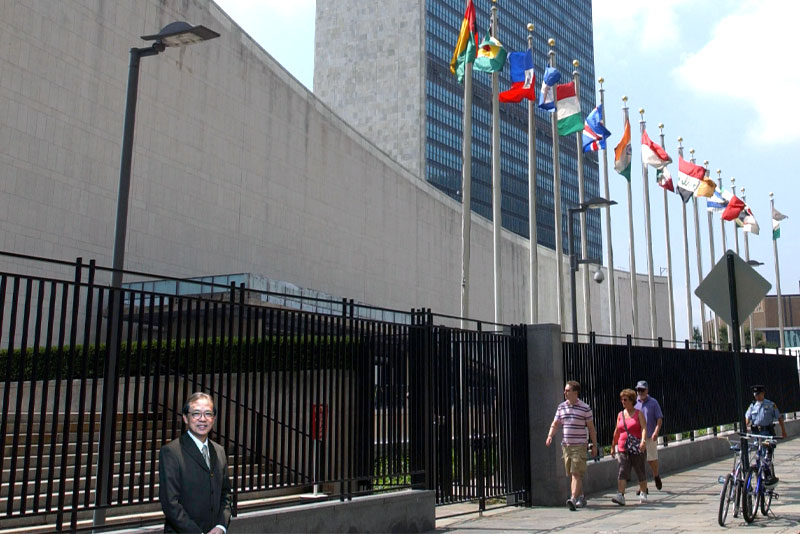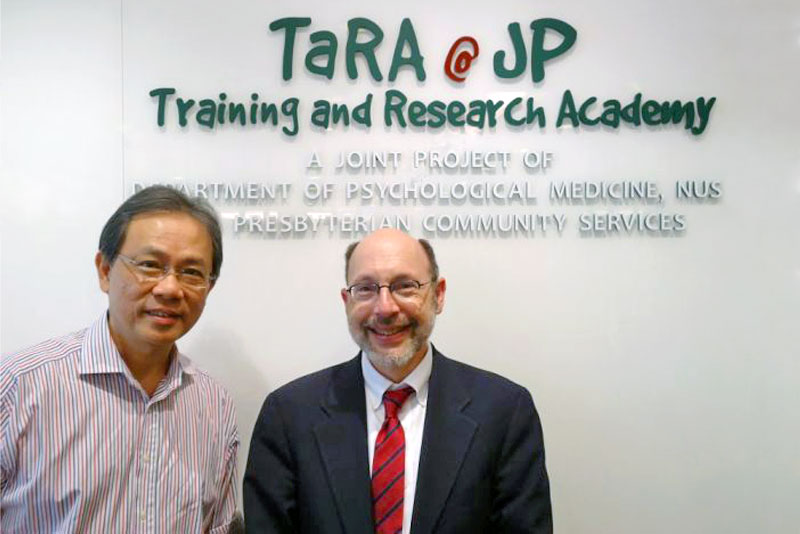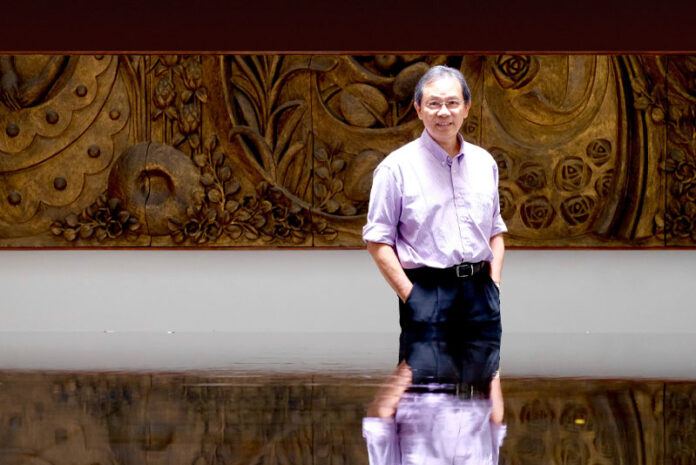According to research, 10 to 20 per cent of new cases of dementia reported every year in Singapore could have been prevented and the remaining cases delayed. How is this possible and what steps can be taken?
In an interview with The Graduate, Professor Kua Ee Heok, Tan Geok Yin Professor of Psychiatry and Neuroscience and Senior Consultant Psychiatrist at the National University of Singapore (NUS), shares some fascinating insights.
“Keeping a positive mindset and staying active can lead to delaying the onset of dementia in the elderly and improve their quality of life,” shares Prof Kua. “Social, mental and physical health are of paramount importance for dementia patients. It’s a high-risk situation if depression co-occurs with dementia. We turn to music, art, brain-stimulating activities, mindfulness therapy, gardening and ‘meridian flapping’ exercises (where participants use special tools to hit different acupuncture points on their bodies to improve blood circulation) to enhance engagement and prevent dementia from striking those above 60 years suddenly,” he adds.
As a member of the World Health Organisation (WHO) research team for the Global Study of Dementia, Prof Kua has researched extensively on the syndrome. Having gained many international awards and accolades, Prof Kua also had the privilege of being invited to speak at the United Nations World Forum on depression in 1999. Looking back, he describes his UN talk as “one of the best moments” of his life.
Today, he is recognised as a pioneer in Singapore’s mental health landscape, initiating the Dementia Prevention Programme and establishing the nation’s first memory clinic in 1990. Prof Kua is also a strong advocate for non-pharmacological methods to slow the progression of dementia.

Is dementia contagious?
No! Prof Kua helps bust this common misconception, explaining how dementia is not and rarely transmitted genetically. “About 10 per cent of cases are genetically transmitted. Dementia is a broad condition and not just one illness. It can be linked to hypertension, diabetes, diet, genetics, and deficiency of vitamin B12 or B6, so identifying a single cause of dementia is difficult. Hence a preventive drug is yet to be found,” says Prof Kua.
Another misconception he likes to clear up – one that he actually got taught himself while a medical student – concerns the brain stopping to grow at the age of 45. Prof Kua says this is simply not true: “The brain doesn’t stop growing and if in old age we keep stimulating it, chances of keeping dementia at bay, increase,” he explains.
Spot early symptoms
Most dementia patients develop a sense of forgetfulness. They might be able to remember incidents as old as World War I, but short-term memory goes off. “They’ll forget the name of an object or people around them. The onset of dementia is slow and gradual but sometimes a sudden stroke can cause a drop in mental functioning. These are the signs that alert us about the approaching illness,” shares Prof Kua.
Prevention and delay
Prof Kua, who has authored no fewer than 25 books on topics such as psychiatry, dementia, depression and stress, believes that controlling hypertension and diabetes can help prevent dementia. “Exercising (such as walking or yoga), mindfulness meditation, diet control, and undertaking any activity that the elderly enjoy, can be useful in keeping minds active. We recommend they learn playing guitar, piano, dancing, sitar, join a choir, paint or enjoy soulful music,” explains Prof Kua.

Advice during the pandemic
Caregivers should make sure the seniors sleep well at night and that their sleep patterns are not disturbed. “Sometimes elder abuse is common when caregivers become stressed. So, the family needs to step in at that time to give a break to caregivers. Spending time with the patients, making them involved in activities, bringing along old photos or playing games can help keep them calm during a pandemic situation,” advises Prof Kua. He recommends that patients should preferably stay in their own homes with family rather than at the hospital. “We want them to age at their own home. Research is currently ongoing about ageing at home and voluntarism. We’re trying to see how it may help boost the immune system or change something in the body to cope with dementia,” he shares.
Economic benefits
Prevention of dementia could also lead to huge economic savings, given the high costs of medical care in Singapore. With average life expectancy in Singapore rising to 82 years, people are still working beyond 65 years of age. “This is a good economic shift and the seniors are able to save money for healthcare. They need to remain active and independent,” says Prof Kua.
Fact check
One in 10 people age 60 and above may have dementia [Well-being of the Singapore Elderly (WiSE) study led by the Institute of Mental Health, 2015]
Singapore witnesses 2,500 new cases of dementia every year. An estimated 82,000 people are living with dementia, and this number is expected to go beyond 100,000 by 2030.
About the Speaker
Prof Kua Ee Heok was trained as a doctor in the University of Malaya, Kuala Lumpur. His training in Psychiatry was at Oxford University and he obtained the Membership of the Royal College of Psychiatrists (UK) in 1980. He was awarded a scholarship for Geriatric Psychiatry training at Harvard University in 1984 and he received an MD for research from the National University of Singapore in 1992. He also received psychiatry research training at the National Institute of Mental Health (NIMH) USA and became a Fellow of the Royal College of Psychiatrist (UK) in 1992.
Over the years, Prof Kua has held multiple titles and contributed significantly to various hospitals and organisations. Among the various titles, he was the CEO and Medical Director of the Institute of Mental Health (IMH). He started the first memory clinic in Singapore and served as the Head of Department of Psychological Medicine in National University of Singapore. He was the President of the Pacific Rim College of Psychiatrist and the President of the Gerontological Society. He was also involved in the board and committees of various other organisations such as the World Psychiatric Association Committee for Education and WHO Consultant for Dementia Research. He is the former Chairman of the SAF Psychiatry Advisory Board.
Prof Kua has taught and mentored numerous distinguished doctors and psychiatrists in Singapore. He had been awarded the Best Teacher Award in the Institute of Mental Health and received the prestigious National Day Award, Long Service Medal in 2009 and National Day Award, Public Service Star in 2018.
Professor Kua will be a key speaker at an upcoming NUSS webinar titled ‘Age Well Everyday’ on 13 August.
Contact Jocelyn Tan at [email protected] for more details.







